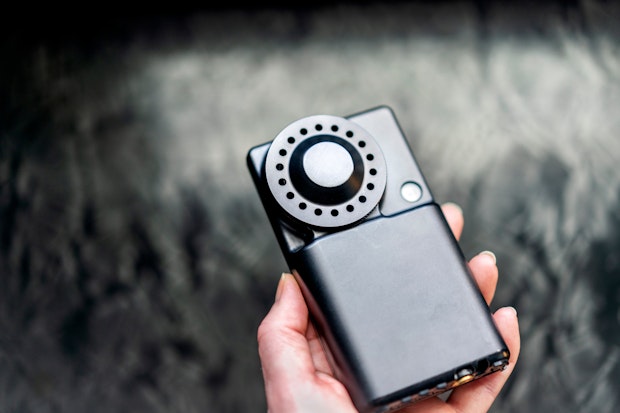
By Dr. Paul Scholl, Program Director, Crohn’s Disease Program, Helmsley Charitable Trust
Technology today makes it possible to measure the world around us in ways we could have barely imagined even a decade ago. The air we breathe, the food we eat, the built environment around us, and the social systems that support us, all influence health outcomes. At the Helmsley Charitable Trust, the Crohn’s Disease Program supports work to translate the troves of data we can collect — through smartphones, wearable sensors, and passive monitoring devices — into actionable knowledge about these environmental impacts on health. This translation is no small feat, but innovative research is making great strides to empower us with information about our health and how the myriad things we can’t see affect our well-being.
Crohn’s disease provides a great case study in how the world around us shapes health and disease. It is an inflammatory disorder of the intestinal tract that affects more than two million people globally. We have a limited understanding of what causes it, but scientists believe it is multifactorial: a complex interplay of genetics, the immune system, and environmental factors, potentially including exposure to pollutants, microbes, and food. How each of these contributes, and what specifically about the environment, genes, or immune system leads to Crohn’s disease, is not yet fully understood. Research into how Crohn’s disease develops is unlocking mysteries that could lead to new treatments for the condition or to even allow us to prevent or cure it, by avoiding exposure to triggers or by illuminating the biology of inflammation and designing drugs that target it.
One step further, insight into the causes of disease flares in people who are already diagnosed with Crohn’s disease would be invaluable. Flares are a reappearance or worsening of disease symptoms that occur periodically and are common in Crohn’s disease. They are unpredictable, disruptive, and debilitating for many. If we can understand what triggers disease flares, patients and their providers may be able to predict when they will occur and eventually prevent them from occurring.
Mike Snyder, Ph.D. is the Director of the Center for Genomics and Personalized Medicine at Stanford University and is leading a novel project* to identify potential environmental exposures that contribute to Crohn’s disease. Using non-invasive wearable devices called ‘exposometers,’ Dr. Snyder and his team measure airborne environmental exposures and physiological markers of individuals with Crohn’s disease or at elevated risk of developing Crohn’s disease. They aim to assess whether certain elements or biological markers are linked to the development and progression of the disease.

Stress is known to be a contributor to poor health outcomes, and Crohn’s disease is no exception. Stephen Friend, M.D., Ph.D. is the President and Co-Founder of 4YouandMe, and leads another exciting project* to measure our responses to the world around us. He monitors stress responses using wearable devices, such as the Oura ring sensor and activity tracker and smartphones, to try to predict changes in disease course. Smartphones and other wearable devices have become a part of everyday life for many people, and this exciting work could allow them to unlock a better, more accessible understanding of disease.
Dina Katabi, Ph.D. is Director of the MIT Center for Wireless and Mobile Computing and the CEO of Emerald Innovations, Inc. Making the data collection even more effortless, she uses sensors to passively monitor the patient without them having to wear a device or come into a doctor’s office. This patented wireless technology, that people can set up at home, is collecting data about vital signs, sleep, and movement in people with Crohn’s disease. The data they collect will be analyzed to predict flares of Crohn’s disease.
Much remains to be learned about the relationship between environment and health, and how we can use sensors to collect data to inform our health decisions. What are the barriers to implementing these game-changing technologies in clinical practice and to empower people to make informed decisions about their health? What is the future of disease monitoring, and how will it affect the relationships between patients and care providers? How will the data be analyzed to interpret research findings? The prevalence of Crohn’s disease is increasing — what in the environment is leading to this, and can these technologies help reverse this trend?
The knowledge gained from these projects could be life-changing to people with Crohn’s. Predicting flares in advance would allow earlier treatment, potentially preventing them or reducing their severity — giving people more control over their lives.
We are thrilled to bring these experts together to explore these ideas at Aspen Ideas: Health during our panel The World Around Us. We look forward to seeing you there!
[*Note: The Helmsley Charitable Trust supports Dr. Snyder’s work through a grant to Stanford University and Dr. Friend’s work through a grant to 4YouandMe. Emerald Innovations is a subcontractor on a grant from Helmsley to Brigham and Women's Hospital.]
___________________________________________________
The Helmsley Charitable Trust is a 2022 Aspen Ideas: Health underwriter. The views and opinions of the author are their own and do not necessarily reflect those of the Aspen Institute.

